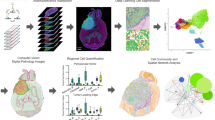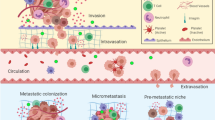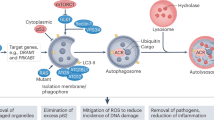Abstract
Curcumin has become a focus of interest with regard to its antitumor effects in prostate cancer; however, the effects of this agent on invasion and metastasis remain less well understood. Matrix metalloproteinases (MMPs) are important prerequisite for tumor invasion and metastasis. In this study, we evaluated the effects of curcumin on prostate cancer cells (DU-145) invasion in both in vitro and in vivo. We utilized zymography and ELISA in order to determine the MMP-2 and MMP-9 activity. Matrigel invasion assay was performed to assess cellular invasion. We developed a xenograft model to examine tumorigenicity. Curcumin treatment resulted not only in a significant reduction in the expression of MMP-2 and MMP-9, but also effected the inhibition of invasive ability in vitro. Curcumin was shown to induce a marked reduction of tumor volume, MMP-2, and MMP-9 activity in the tumor-bearing site. The metastatic nodules in vivo were significantly fewer in the curcumin-treated group than untreated group. Curcumin appears to constitute a potential agent for the prevention of cancer progression, or at least of the initial phase of metastasis, in prostate cancer.
This is a preview of subscription content, access via your institution
Access options
Subscribe to this journal
Receive 4 print issues and online access
$259.00 per year
only $64.75 per issue
Buy this article
- Purchase on Springer Link
- Instant access to full article PDF
Prices may be subject to local taxes which are calculated during checkout




Similar content being viewed by others
References
Jemal A, Tiwari RC, Murray T, Ghafoor A, Samuels A, Ward E et al. Cancer statistics, 2004. CA Cancer J Clin 2004; 54: 8–29.
Denis L, Morton MS, Griffiths K . Diet and its preventive role in prostatic disease. Eur Urol 1999; 35: 377–387.
Hebert JR, Hurley TG, Olendzki BC, Teas J, Ma Y, Hampl JS . Nutritional and socioeconomic factors in relation to prostate cancer mortality: a cross-national study. J Natl Cancer Inst 1998; 90: 1637–1647.
Yu AE, Hewitt RE, Connor EW, Stetler-Stevenson WG . Matrix metalloproteinases. Novel targets for directed cancer therapy. Drugs Aging 1997; 11: 229–244.
Kohn EC, Liotta LA . Molecular insights into cancer invasion: strategies for prevention and intervention. Cancer Res 1995; 55: 1856–1862.
John A, Tuszynski G . The role of matrix metalloproteinases in tumor angiogenesis and tumor metastasis. Pathol Oncol Res 2001; 7: 14–23.
Stearns M, Stearns ME . Evidence for increased activated metalloproteinase 2 (MMP-2a) expression associated with human prostate cancer progression. Oncol Res 1996; 8: 69–75.
Kanoh Y, Akahoshi T, Ohara T, Ohtani N, Mashiko T, Ohtani S et al. Expression of matrix metalloproteinase-2 and prostate-specific antigen in localized and metastatic prostate cancer. Anticancer Res 2002; 22: 1813–1817.
Trudel D, Fradet Y, Meyer F, Harel F, Tetu B . Significance of MMP-2 expression in prostate cancer: an immunohistochemical study. Cancer Res 2003; 63: 8511–8515.
Zhang L, Shi J, Feng J, Klocker H, Lee C, Zhang J . Type IV collagenase (matrix metalloproteinase-2 and -9) in prostate cancer. Prostate Cancer Prostatic Dis 2004; 7: 327–332.
Morgia G, Falsaperla M, Malaponte G, Madonia M, Indelicato M, Travali S et al. Matrix metalloproteinases as diagnostic (MMP-13) and prognostic (MMP-2, MMP-9) markers of prostate cancer. Urol Res 2005; 33: 44–50.
Dorai T, Gehani N, Katz A . Therapeutic potential of curcumin in human prostate cancer-I. Curcumin induces apoptosis in both androgen-dependent and androgen-independent prostate cancer cells. Prostate Cancer Prostatic Dis 2000; 3: 84–93.
Dorai T, Cao YC, Dorai B, Buttyan R, Katz AE . Therapeutic potential of curcumin in human prostate cancer. III. Curcumin inhibits proliferation, induces apoptosis, and inhibits angiogenesis of LNCaP prostate cancer cells in vivo. Prostate 2001; 47: 293–303.
Mukhopadhyay A, Bueso-Ramos C, Chatterjee D, Pantazis P, Aggarwal BB . Curcumin downregulates cell survival mechanisms in human prostate cancer cell lines. Oncogene 2001; 20: 7597–7609.
Dorai T, Dutcher JP, Dempster DW, Wiernik PH . Therapeutic potential of curcumin in prostate cancer-V: interference with the osteomimetic properties of hormone refractory C4-2B prostate cancer cells. Prostate 2004; 60: 1–17.
Shenouda NS, Zhou C, Browning JD, Ansell PJ, Sakla MS, Lubahn DB et al. Phytoestrogens in common herbs regulate prostate cancer cell growth in vitro. Nutr Cancer 2004; 49: 200–208.
Adams BK, Cai J, Armstrong J, Herold M, Lu YJ, Sun A et al. EF24, a novel synthetic curcumin analog, induces apoptosis in cancer cells via a redox-dependent mechanism. Anticancer Drugs 2005; 16: 263–275.
Nakamura K, Yasunaga Y, Segawa T, Ko D, Moul JW, Srivastava S et al. Curcumin down-regulates AR gene expression and activation in prostate cancer cell lines. Int J Oncol 2002; 21: 825–830.
Sehgal G, Hua J, Bernhard EJ, Sehgal I, Thompson TC, Muschel RJ . Requirement for matrix metalloproteinase-9 (gelatinase B) expression in metastasis by murine prostate carcinoma. Am J Pathol 1998; 152: 591–596.
Acknowledgements
This research was conducted with financial support provided by the OTTOGI Corporation, Anyang, Korea.
Author information
Authors and Affiliations
Corresponding author
Rights and permissions
About this article
Cite this article
Hong, J., Ahn, K., Bae, E. et al. The effects of curcumin on the invasiveness of prostate cancer in vitro and in vivo. Prostate Cancer Prostatic Dis 9, 147–152 (2006). https://doi.org/10.1038/sj.pcan.4500856
Received:
Accepted:
Published:
Issue Date:
DOI: https://doi.org/10.1038/sj.pcan.4500856
Keywords
This article is cited by
-
Synergistic effects of dendrosomal nanocurcumin and oxaliplatin on oncogenic properties of ovarian cancer cell lines by down-expression of MMPs
Biological Research (2023)
-
Exploring the role of natural bioactive molecules in genitourinary cancers: how far has research progressed?
Natural Products and Bioprospecting (2023)
-
Diet-derived small molecules (nutraceuticals) inhibit cellular proliferation by interfering with key oncogenic pathways: an overview of experimental evidence in cancer chemoprevention
Biologia Futura (2022)



